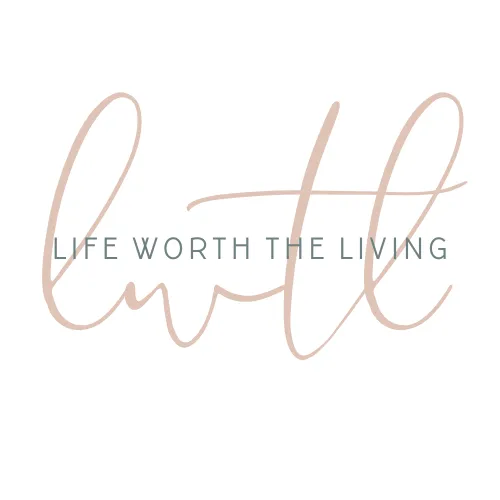
Why You Deserve a Break: How to Unplug from Work
Taking a long break from work is often perceived as a luxurious indulgence reserved for those “higher up”, not for regular people like you and me. But long breaks can be a significant investment in our overall well-being and yes, even our productivity. In today’s fast-paced world, the thought of stepping back from our professional commitments for an extended period may seem impossible. However, the benefits far outweigh any obstacles.
In this blog post, we will explore the concept of taking a long break from work, and its potential impact on mental and emotional rejuvenation, physical well-being, and overall productivity. Join me as we consider the reasons why a long break might be precisely what you and I need to recharge and reset.
Benefits of Taking a Long Break From Work
Mental and Emotional Rejuvenation
It seems in this day and age, there’s a pretty big mental and emotional toll on people in the workforce. Those who take a longer break from work have a unique opportunity to step back from the daily pressures and recharge their mental batteries. Taking time to get away allows us space to address any accumulated stress, reflect on our priorities, and regain a sense of balance. This period of rest also allows for introspection, self-care, and the chance to reconnect with our inner selves, which leads to a refreshed outlook and a renewed sense of emotional well-being.
Physical Well-Being and Stress Reduction
But the health benefits don’t just stop with our mental and emotional health, it’s also great for our physical well-being and stress reduction. Chronic stress is a real thing and very common nowadays. A break grants us the time and freedom to focus on self-care, adopt healthier habits, and prioritize our physical health. Whether it’s engaging in regular exercise, improving sleep patterns, or simply taking time for relaxation, the results will be reduced stress levels and an overall feeling of renewal.
Increased Creativity and Productivity
One of the concerns people have about taking extended breaks is a decrease in productivity once they return. But the opposite is true. Taking a long break from work can have a remarkable effect on our creativity and productivity. Because stepping away from the daily routine provides the mental space we need to explore new interests, gain fresh perspectives, and reignite our creative spark. A break can refresh innovative thinking, problem-solving, and personal growth, ultimately enhancing our ability to approach work challenges with renewed vigor and efficiency.
The first time I took the summer off to spend with my family, I was close to burning out. It was really hard for me to step away from the mounting things I felt I had to do but it was one of the single best things I could do not only for my mental health but also for my business. When it was time for me to return, I was fully refreshed and ready to take on any challenge needed. Because of the time away, my creativity was restored and my business improved as a result.
Planning for a Long Break
Financial Considerations and Budgeting
Planning for a long break from work takes time and thoughtful consideration. Budgeting is one of the most important factors. You have to know whether this would be covered or an unpaid leave. Can afford to take the time off work and then consider the finances during your break. Will you take a staycation or travel? If you’re traveling, are you staying in furnished homes, hotels, campsites, and/or hostels? How will you travel? What will you eat? Considering carefully your daily expenses is crucial for a smooth and stress-free experience. Your budget should be comprehensive and account for both expected and unexpected costs.
Notifying Employers or Clients
Once you know that a long break is feasible, you’ll want to start planning. You will need to notify employers or clients about the intention to take a long break and that requires careful consideration and open communication. Long breaks are not common so it’s important to approach this conversation with professionalism and transparency, outlining the reasons for the break and discussing any potential impact on ongoing projects or responsibilities. If you provide ample notice and offer to assist with the transition, the process will be much smoother for both parties and you can leave in confidence, knowing you’ve maintained a positive relationship with work.
Making Necessary Arrangements for Work Coverage
At this point you might be worrying there’s too much to do and a long break is not feasible. But with careful preparations, you can do this and you’ll be so glad you did. The last step in planning to leave work is making the necessary arrangements for work coverage. This may involve delegating tasks to colleagues, training temporary replacements, or setting up systems for remote communication and support. Having all of this lined up will allow you to leave for your break with peace of mind, knowing your responsibilities are being taken care of in your absence.
Activities During the Break
Traveling and Experiencing New Cultures
Now for the fun part! If you are going to take a long break, let me encourage you to travel. You don’t have to do it the whole time but carve out some part of your leave for this. Trust me, getting away will truly aid you in your relaxation and recharging.
Not to mention, engaging in travel and immersing oneself in new cultures can be an amazing experience. Whether it involves exploring distant lands, learning about different customs, or savoring unique cuisines, travel truly enriches life. And you can return with lasting memories that will help carry you through until your next adventure.
Pursuing Hobbies and Interests
The break from work also presents you with the perfect time to pursue hobbies and interests that you hadn’t had time to pursue before. Maybe you learn a new skill. Trying new things opens a whole other world for you. And it offers you a creative outlet for when you do go back to work.
Spending Quality Time with Family and Friends
Whether you decide to travel during your break or stay home, spending quality time with family and friends is a must. This period offers a unique chance to strengthen bonds, create cherished memories, and nurture meaningful relationships. You don’t even have to make a ton of plans, either. You can have shared experiences, meaningful conversations, or simply enjoy each other’s company. Whatever you choose to do or however much time to set aside for this will be well worth it.
Overcoming Challenges
Dealing with Guilt or Anxiety
If you’ve never taken a long break before, it’s common to experience feelings of guilt or anxiety about stepping away from professional responsibilities. But live there. Acknowledge and address those emotions by reminding yourself of the value of self-care and personal rejuvenation. Recognizing that taking a break is not only acceptable but also beneficial can help alleviate these feelings, which are necessary for a fulfilling and restorative experience.
Adjusting to a Different Routine
Adapting to a more relaxed schedule or engaging in unfamiliar activities may initially feel disorienting. However, there’s a lot of growth to be had when you embrace the change and find purpose and enjoyment in it. When I went on my first summer break, I had to retrain my thinking. It took time for me to realize that I wasn’t being unproductive. I was just being productive in other things. And those things were making me happier and more fulfilled than work had been.
Now I look forward to my summers with my family where we spend time working on projects we spend all school year thinking about. We can relax and read books, travel, and make memories. There are so many wonderful experiences I get to have on my long breaks that I just can’t enjoy fully when I’m working.
Managing Expectations of Others
If you’re going to get the most out of your long break, then it’s important to set boundaries and communicate your availability and commitment to the break. By discussing ahead of time, your expectations with colleagues, clients, and loved ones, you can help them understand the importance of this break in your life. (You may even convince them to consider one!)
Returning to Work
Transitioning Back to Work
Usually when I’m ready to head back to work, I’m biting at the chomp eager to get busy. But it still takes some transitioning. And that’s perfectly normal. In fact, it’s essential to allow for a period of adjustment, to reacquaint yourself with professional responsibilities and routines. Easing back into work allows you to keep a balanced workload and keeps you from getting overwhelmed.
Reflecting on Lessons Learned
If you are blessed enough to make a long break happen for you, let me encourage you not to lose sight of the amazing experiences you gained during your time away, or the lessons you learned. You can take those lessons and insights and incorporate them into your professional life. This gives you the unique advantage of approaching challenges with renewed creativity while reminding you of the importance of setting aside time to rest.
Maintaining Healthy Work-Life Balance
Maybe while you were on your break you realized some unhealthy habits you were holding onto and decided it best to let those go. Make sure you do and replace them with healthy habits. And think about the things that made you happiest in the day. Was it a daily walk? Time to read a chapter in a book? Whatever it is, make time for those things now that you’re back at work.
Maintaining a healthy work-life balance post-break allows you to stretch out the benefits you gleaned while on your break. This might involve setting boundaries, prioritizing self-care, time management strategies, and regular self-assessment. Or maybe trying to fit in smaller, regular breaks. Whatever a healthy work-life balance looks like for you, make sure to make it a priority.
Final Thoughts
If you are still on the fence about whether or not you should consider a long break from work, think about the potential benefits and consider the positive impact it could have on your overall health and fulfillment. Think through all the cons and work on them until they’re doable. Then take the next step and step away from the stress and busyness of your life to find some peace and rest. Your future self will love you for it!
© 2023 Freedomkit | Powered by Freedomkit.ai

